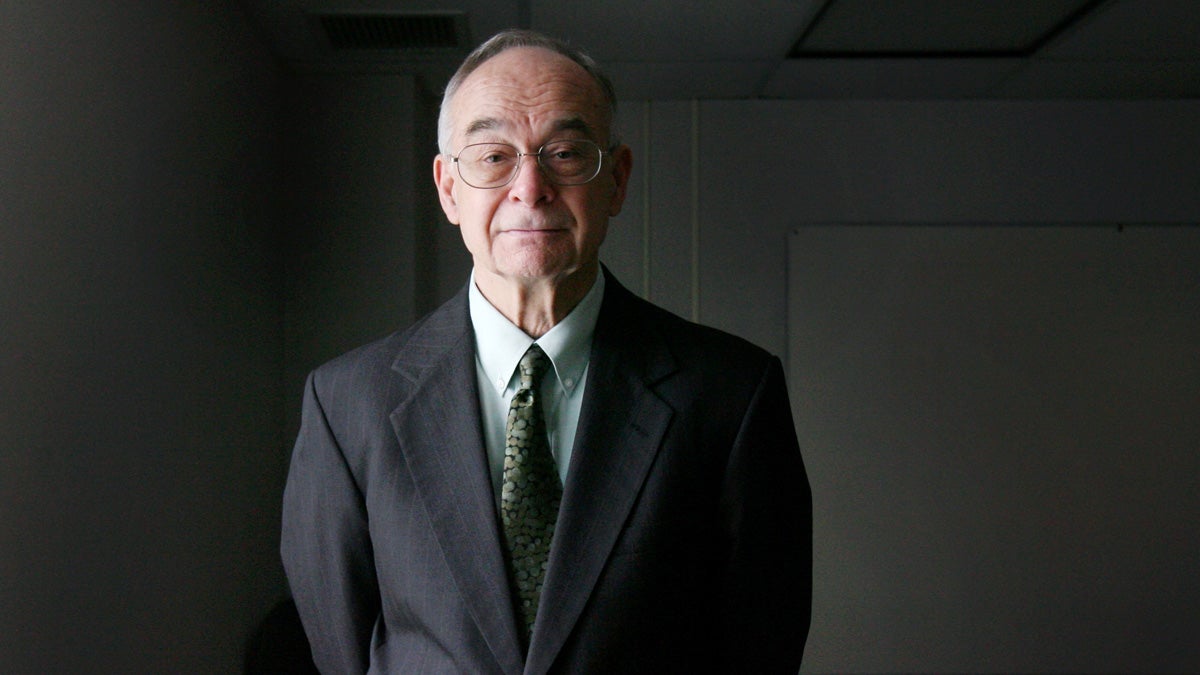One man’s mission to change perceptions of people with schizophrenia
Listen
(Photo credit: Gus Chan/The (Cleveland) Plain Dealer)
Psychologist Frederick Frese explains how his experience with schizophrenia shaped his passion for helping others with mental illness.
Psychologist Frederick Frese has a rather direct way of introducing himself.
“Hello,” he says. “I’m a schizophrenic,” then he quickly rephrases it to, “I’m a man who suffers from paranoid schizophrenia.”
He doesn’t do it for dramatic effect, or to make others uncomfortable, but rather to change people’s perceptions of people with severe mental illness.
“I might as well let you know from the start that here I am… a productive member of society,” he adds.
And it wasn’t an easy journey.
Things changed for Frese at age 25. He had just been promoted to captain in the U.S. Marine Corps, after serving for four years. He says the early years of the Vietnam War may have triggered his first episode.
“Here I was working 24/7, guarding these atomic weapons, when I had the episode, and next I saw, somebody was walking me away and calling me crazy,” he recalls.
Frese ended up spending years in and out of hospitals and mental institutions but was eventually released. Therapy, medication and “long periods of joblessness” gave him time to complete his college education and earn degrees in psychology, international management and math. Eventually he was declared “sane” and decided to work in a field that would allow him to help others.
“The big thing for me is to interact with professional communities, the psychologists, the psychiatrists, the research community, the Veteran’s Administration, and advocacy groups such as NAMI (National Alliance on Mental Illness),” he says, “and be a living example that I can function even though I have this disorder and there are an awful lot of people like me, but most of them are not open to talk about their psychotic breaks.”
There are some advances in the treatment of schizophrenia, especially with medication, he says, and “people don’t end up permanently locked in mental institutions, or lobotomized or forced to have electroshock-therapy. Most of us are out, but not many are functioning as well as I and others; many end up homeless in the street or in jail.”
Starting in 2000, Frese and a group of mental health social justice advocates began pushing for laws that trained police to deal with people who suffer from mental illness.
“It changed their lives,” he said. “But when we passed those laws, nobody told the police that they were going to be the new mental health workers!”
Now in his late 60s, Dr. Frederick Frese, continues to teach, lecture and advocate for the rights of the mentally ill.
“What puts joy in my heart,” he says, “is to see younger people who have been through what I have been through, coming out to join the fight.”
Frese was interviewed for this story in 2012, when he participated in the “Opening Closed Doors” conference organized by the Thomas Scattergood Behavioral Health Foundation.
WHYY is your source for fact-based, in-depth journalism and information. As a nonprofit organization, we rely on financial support from readers like you. Please give today.



